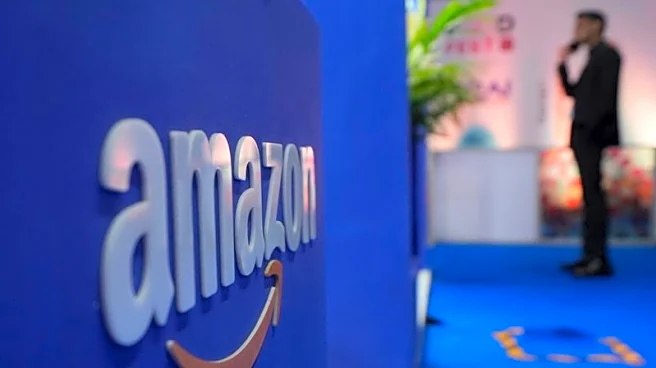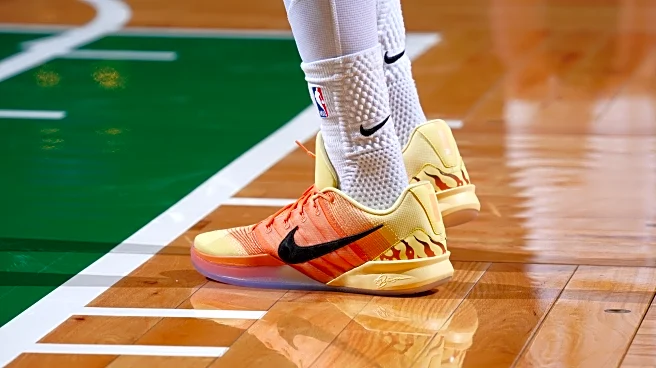By Greg Bensinger
SAN FRANCISCO (Reuters) -Amazon is plotting a big change to its Fire tablet lineup following years of escalating gripes from consumers and app developers over the company's homegrown operating
system.
As part of a project known internally as Kittyhawk, Amazon plans to release a higher-end tablet as soon as next year offering the Android operating system software for the first time, according to six people familiar with the matter. Since the Fire tablet’s introduction in 2011, Amazon has used what is known as a “forked” version of Android with custom modifications that make it work like a unique operating system.
Amazon has long sought to undercut hardware rivals with inexpensive tablets and other devices that serve as a doorway to the firm's digital content, like e-books, videos and music. The devices have typically sold at or near manufacturing cost. But the focus on simplicity has held back sales, particularly among consumers who seek higher-performing devices.
The multiyear project to switch to Android marks a philosophical change for the online retail giant, which has eschewed third-party operating systems and software in favor of its own. As a result, Amazon has offered its own app store requiring developers to make separate versions of their apps for Fire tablets, limiting the store’s variety.
If Kittyhawk is successful, Fire tablets could be more desirable for consumers who crave compatibility with other Android devices, the people said. They cautioned that Kittyhawk could be delayed or cancelled over financial or other concerns.
Amazon declined to comment, saying it does not respond to rumors or speculation.
“Consumers have always expressed a concern about not having access to the latest Android versions, not having access to some of their apps because Amazon used their own store,” said Jitesh Ubrani, a researcher at IT advisory firm IDC. “It’s meant more work for developers in this day and age of largely free apps or services.”
Ubrani noted that Amazon has nonetheless sold many millions of the tablets. Amazon has forfeited profits on the devices themselves in favor of making money on selling their associated services, like streaming movie rentals. But such inexpensive devices typically come with compromises like lower screen quality or battery life compared with pricier options.
Amazon is the world’s fourth-largest tablet seller, with 8% of the market, just behind Lenovo's 8.2%, according to second-quarter IDC data. Apple and Samsung were the market leaders with 33.1% and 18.7%, respectively.
PRICIER TABLET
The first Amazon Android tablet, slated for next year, will be pricier than current models, the people said. One of them said Amazon had discussed a $400 price tag, nearly double the cost of its current higher-end $230 Fire Max 11 tablet. IPads, by comparison, range from $350 to $1,200. Reuters could not learn additional specifications for the planned Amazon tablet, such as screen size and speaker quality or memory capacity.
Amazon historically has avoided using software or other products from third parties, preferring to develop the services in-house or, barring that, to acquire a competitor. The Fire Phone smartphone championed by Amazon founder Jeff Bezos and released in 2014 failed to win over buyers in part because of its reliance on Fire OS, as well as its high price tag. Amazon canceled the device and took a $170 million writedown.
But the Seattle retailer has more recently shown a willingness to use rivals’ services, particularly through its investment in startup Anthropic, whose Claude artificial intelligence software is the primary underpinning of Amazon’s Alexa+ voice assistant and a chatbot used by employees known as Cedric.
The new Fire tablet, the people said, will use the open-source version of Android, meaning it does not require direct coordination with Google and can be customized.
Amazon is planning to roll out some lower-priced tablets with its Linux-based Vega operating system now in some Fire TV devices, some of the people said. The full slate of tablets will eventually be powered by a version of Android, the people said.
The Fire project's internal code name of Kittyhawk seems to derive from the North Carolina town near where the Wright brothers conducted the first powered flight in 1903. But it is also the name of a failed flying car startup backed by Google co-founder Larry Page that burned through hundreds of millions in cash. Amazon declined to discuss the meaning behind its Kittyhawk project name.
(Reporting by Greg Bensinger in San Francisco; Editing by Matthew Lewis)










